Bengaluru Express Bengaluru, June 21: “Disaster management requires full cooperation from general public. The governments can make rules but it is the community who should be more aware and responsible” Shalini Rajaneesh, Chief Secretary, said after inaugurating “CBDM India 2025, a two-day International Conference on ‘Disaster.
Resilience: Community-Based Systems to Save Lives and Preserve Health’ Organised by Jeeva Raksha Trust, in collaboration with Indian Institute of Science (IIS), Rajiv Gandhi University of Health Sciences (RGUHS), Government of Karnataka, Indian Medical Association (IMA) Saragur, Swami Vivekananda Youth Movement, IRIDM, and premier national agencies including, ISRO, and NIMHANS held at the JN Tata Auditorium, Indian Institute of Science (IISc) Bengaluru.
This global platform reflected India’s growing commitment to proactive, inclusive disaster readiness.
Chief Secretary recalling recent landslide at Uttara Kannada District’s Shirali Ankola said loss of 9 lives of a family could have been averted if the house and the tea shop was not built on the place where it is landslide prone area. Our authorities could have evacuated them but it is the question of livelihood for those families and this is everyday dilemma we phase. Therefore it is the community who should be more law abiding to avoid such tragedies she emphasised. Even Shalini Rajaneesh recalled the major challenges she phased when she was DC Belgaum during flood situation at many villages of the district by the release of water from Koyna dam by the state of Maharashtra.
Regarding the preparedness of State in emergency flood situations and even in draught like conditions the Government’s disaster management cell has contact of more than 70 lakh farmers registered mobile numbers and at once can alert all of them in any emergency situations she informed.
Regarding infamous Bengaluru floods Chief Secretary said there are 201 flood prone locations in the city.Most of these locations where houses or establhments buildings are built have not taken proper approval from the Government authorities.Now it is major challenge for the Government either to evacuate the encroachment or rehabilitate them.If Government go for any kind of action it will be anti people.So Community cooperation is the only solution and people should be aware of life threat they phase and the inconvenience cause by these floods.
Climate change is challenge before us and matter of concern as 3080 deaths happened which is increase of 18% compared to last year . Even man-made disasters are also
increasing significantly. the Chief Secretary Shalini Rajaneesh emphasized.
Addressing the inaugural session virtually, Lt Gen Syed Ata Hasnain (Retd), PVSM, Member, National Disaster Management Authority (NDMA), Government of India, provided deep insights through unique civil-military perspective.
“Awareness and community engagement are the two most important things in the domain of disaster management.”
“Disasters are not just humanitarian crises—they can change the course of history. The 1970 cyclone in East Pakistan, now Bangladesh, which claimed hundreds of thousands of lives,played a catalytic role in the political events that followed, ultimately leading to the birth of a new nation and unprecedented migration of people to India. In any high-risk environment—be it a conflict zone or a floodplain—the community is always the first responder. India’s resilience must be built bottom-up. Along with government proactive role, it is community awareness,engagement, and grassroots cohesion that truly determine our ability to with stand and recover from disasters,” he emphasized.
Earlier, setting the stage, Dr. (Flt Lt) M.A. Balasubramanya,Managing Trustee of JeevaRaksha and Chairman of the Organising Committee, said, “In disaster situations—whether caused by nature or conflict—every life saved is a victory of preparedness. At CBDM India 2025, our focus is health, speed, and compassion. We are training our people, strengthen our health systems, and localise our response.
The conference witnessed participation from over 800 delegates, including officials from disaster managementauthorities, armed forces, healthcare institutions, academia, civil society, and youth networks.
Dr. Pratima Murthy, Director, NIMHANS emphasized on the mental health dimension of disaster response. It must be built into every emergency response protocol from the village to the state level.” she said.
Dr. Ram K Nair, Technical Director, JeevaRaksha & Organising Secretary, CBDM 2025, Dr.M.R.Seetharaman IMA, Dr.Pratima Murthy Director Nihmans ,Dr.B.C.Bhagavan Vice Chancellor RGUHS,hi VVS Sreenivas Director IRIDM, Dr.Navakantha Bhat Director Centre of Neuro Science IISc were present.

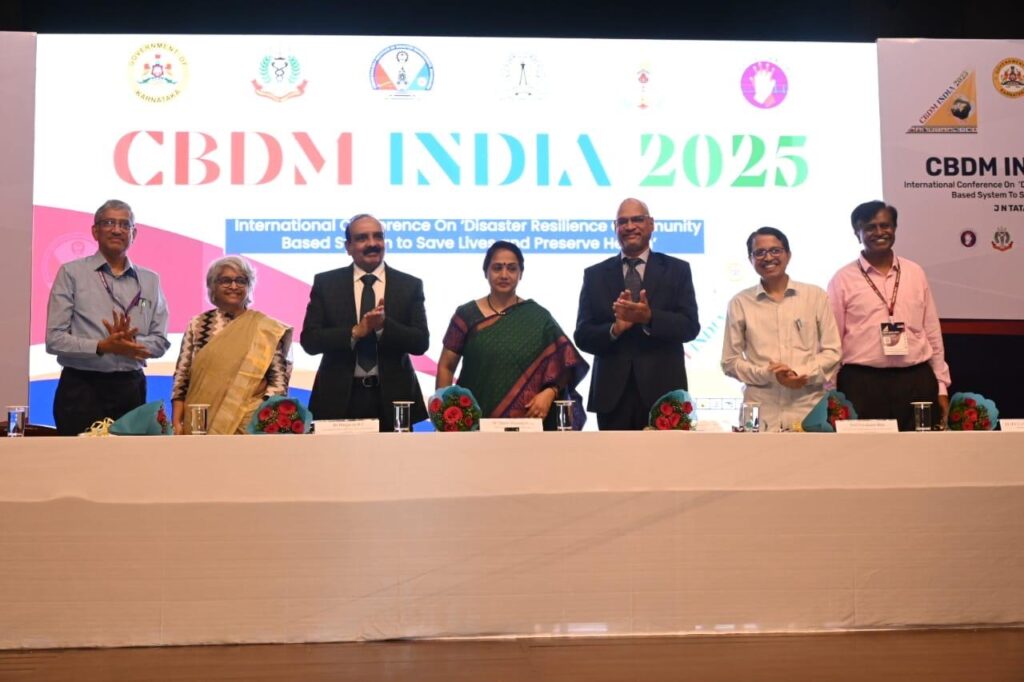
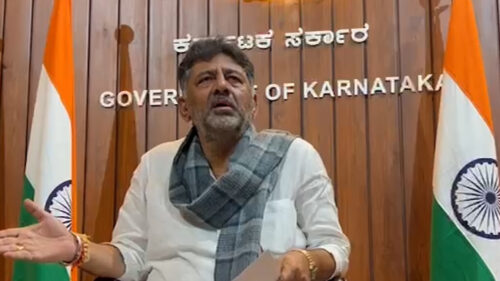
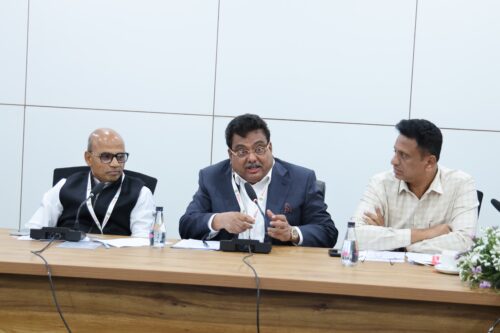
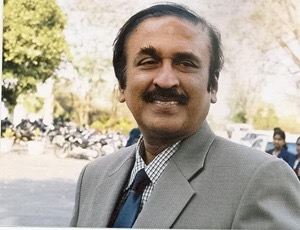
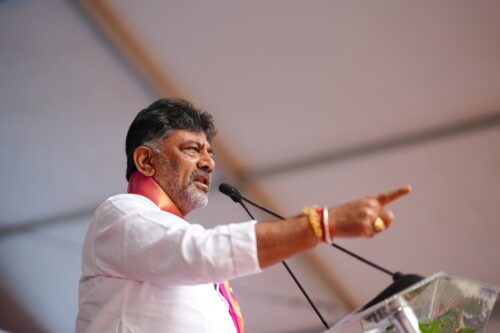
More Stories
Meeting of urban development ministers of South India in Bengaluru on Oct 30: DCM DK Shivakumar
Second International Airport for Bengaluru
Time’s up: It’s No Longer a Man’s World!